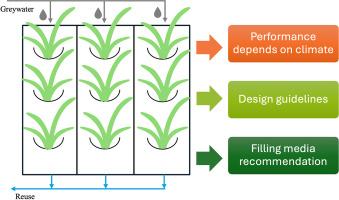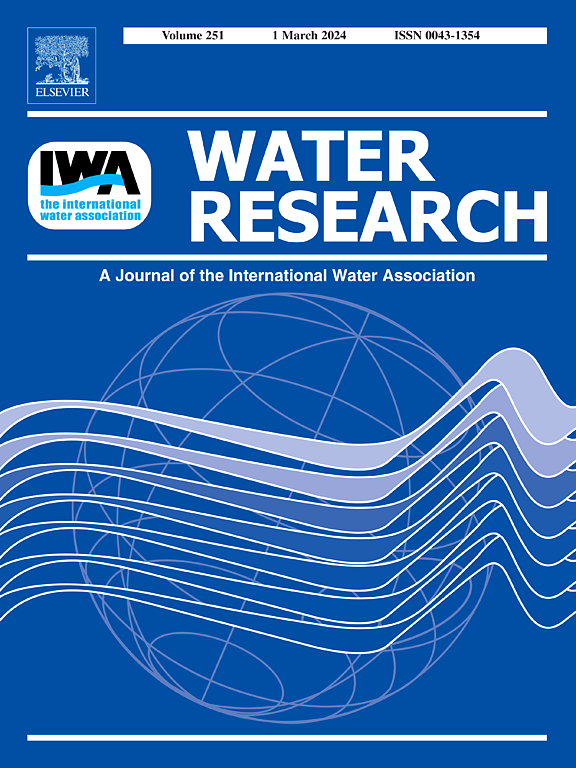Green walls for greywater treatment: a comprehensive review of operational parameters and climate influence on treatment performance
IF 11.4
1区 环境科学与生态学
Q1 ENGINEERING, ENVIRONMENTAL
引用次数: 0
Abstract
Green walls for greywater treatment have emerged as a solution to increase green spaces in densely urbanized areas while providing treated greywater for reuse. Over the past decade, numerous studies have focused on optimizing these systems, though most address specific operational conditions and evaluate a limited set of performance parameters. This review synthesizes the existing literature using a meta-analysis to identify key operational factors and treatment performance metrics. A systematic search was conducted across Google Scholar, Scopus, and Web of Science, resulting in the selection of 33 studies. These studies were classified using the Köppen-Geiger climate classification, and a comprehensive database with over 8,500 entries was built to analyse performance of COD, BOD, TOC, TSS, NH₄⁺, TN, TP, and bacteriological parameters across different climate zones. Results revealed performance variations across climate zones, with temperate climates outperforming dry regions. Regression equations between areal mass load and removal efficiency are proposed as design guidelines, and recommendations are made regarding optimal filling media. Additionally, for specific reuse applications, the inclusion of a disinfection unit is advised to meet microbiological quality standards.

求助全文
约1分钟内获得全文
求助全文
来源期刊

Water Research
环境科学-工程:环境
CiteScore
20.80
自引率
9.40%
发文量
1307
审稿时长
38 days
期刊介绍:
Water Research, along with its open access companion journal Water Research X, serves as a platform for publishing original research papers covering various aspects of the science and technology related to the anthropogenic water cycle, water quality, and its management worldwide. The audience targeted by the journal comprises biologists, chemical engineers, chemists, civil engineers, environmental engineers, limnologists, and microbiologists. The scope of the journal include:
•Treatment processes for water and wastewaters (municipal, agricultural, industrial, and on-site treatment), including resource recovery and residuals management;
•Urban hydrology including sewer systems, stormwater management, and green infrastructure;
•Drinking water treatment and distribution;
•Potable and non-potable water reuse;
•Sanitation, public health, and risk assessment;
•Anaerobic digestion, solid and hazardous waste management, including source characterization and the effects and control of leachates and gaseous emissions;
•Contaminants (chemical, microbial, anthropogenic particles such as nanoparticles or microplastics) and related water quality sensing, monitoring, fate, and assessment;
•Anthropogenic impacts on inland, tidal, coastal and urban waters, focusing on surface and ground waters, and point and non-point sources of pollution;
•Environmental restoration, linked to surface water, groundwater and groundwater remediation;
•Analysis of the interfaces between sediments and water, and between water and atmosphere, focusing specifically on anthropogenic impacts;
•Mathematical modelling, systems analysis, machine learning, and beneficial use of big data related to the anthropogenic water cycle;
•Socio-economic, policy, and regulations studies.
 求助内容:
求助内容: 应助结果提醒方式:
应助结果提醒方式:


